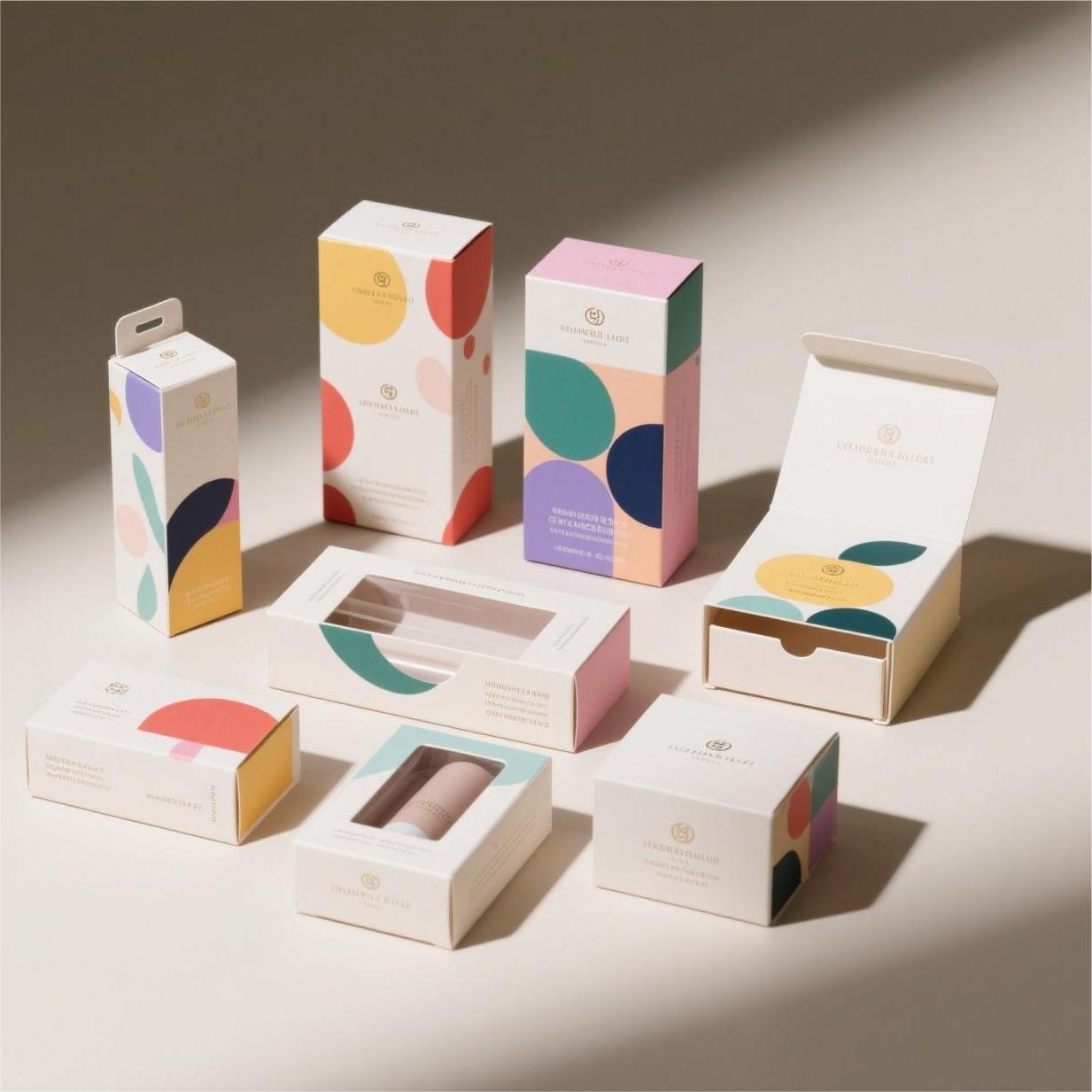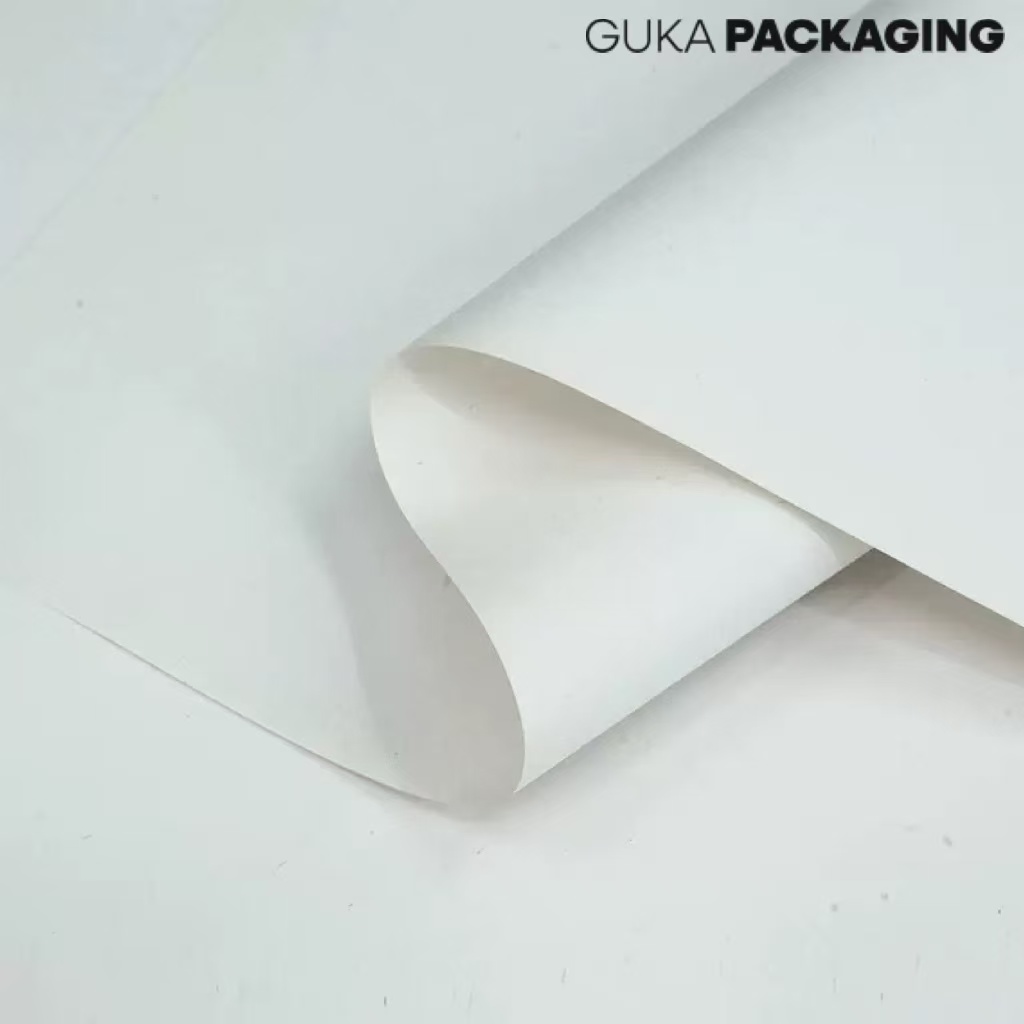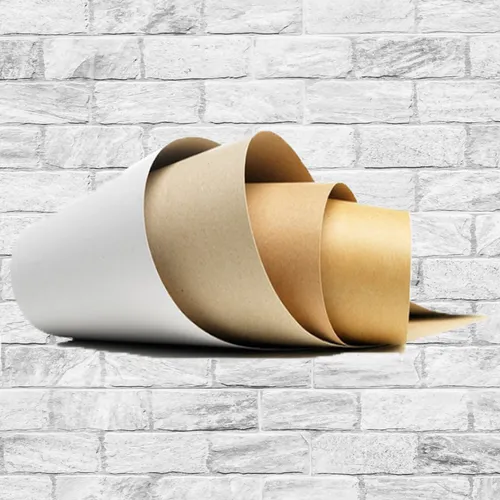Kraft Paper: A Top Choice for Paper Packaging
Discover what kraft paper is, how it’s made, and why it’s a leading eco-friendly choice for custom paper packaging solutions.
Contact Us now
Table of content

Ready to Elevate Your Brand with 100% Custom Box & Bag Solutions?
Get a Free QuoteThe Power of Paper Packaging in a Sustainable World
As global brands shift toward greener packaging options, paper packaging has become a powerful alternative to plastic and other non-recyclable materials. At the forefront of this movement is kraft paper—a strong, sustainable, and versatile material widely used across industries, from cosmetics and chocolate to fashion and electronics.
At GUKA Packaging, we specialize in crafting high-end custom packaging like rigid boxes, corrugated cartons, folding carton boxes, and paper bags. As the demand for eco-friendly packaging grows in the U.S., Europe, and Australia, kraft paper packaging is becoming the go-to solution for businesses seeking both style and sustainability.
What Is Kraft Paper?
The term kraft comes from the German word for “strength,” and that’s exactly what this material offers. Kraft paper is made through a chemical pulping process that removes most of the lignin from wood pulp, leaving behind durable cellulose fibers. The result is a tough, tear-resistant paper known for its natural brown hue—though it also comes in bleached or coated varieties.
Key Characteristics of Kraft Paper:
- High tensile strength
- Tear and burst resistance
- Textured surface ideal for branding and printing
- Biodegradable and recyclable
- Available in varying thicknesses and formats (rolls, sheets, boards)
Kraft paper's physical resilience is one of the key reasons it has found a place in nearly every sector that values both protection and presentation in packaging.
The Kraft Paper Process: How It’s Made
Kraft paper is produced using the kraft process, a method that has become the gold standard for paper pulping due to its efficiency and strength retention.
Step-by-Step Kraft Paper Manufacturing:
- Raw Material Selection: Typically softwoods like pine, spruce, and fir are used because their longer fibers result in stronger paper.
- Chemical Pulping: Wood chips are cooked in a digester with white liquor (a mixture of sodium hydroxide and sodium sulfide).
- Lignin Removal: The chemicals break down lignin, a component that binds cellulose fibers, allowing stronger fibers to remain intact.
- Washing & Screening: The pulp is washed and screened to remove impurities and unprocessed material.
- Drying: The clean pulp is pressed and dried into sheets or rolls.
- Optional Coating or Bleaching: Depending on the desired application, the paper may be bleached for a white appearance or coated for moisture resistance.
This process not only strengthens the final product but also improves recyclability and allows for the reuse of chemicals in a closed-loop system, reducing environmental impact.

Kraft Paper vs. Other Paper Types
Understanding how kraft paper stacks up against traditional paper and specialty papers helps highlight its advantages in both functionality and environmental impact.
Kraft's durability and natural aesthetic are unmatched when it comes to eco-conscious packaging, especially for industries requiring a strong brand presence.
Applications of Kraft Paper Packaging
Kraft paper's flexibility allows it to be adapted to numerous packaging formats. Below are some of the most prevalent and innovative uses across industries.
1. Folding Cartons and Luxury Rigid Boxes
These boxes offer a minimalist yet refined appeal. Used in cosmetics, perfumes, candles, skincare, and gift packaging, kraft folding cartons elevate product value while being fully recyclable.
- Ideal for embossing, foil stamping, and spot UV coating
- Supports structural integrity for heavy or fragile items
- Available in natural or bleached versions for brand color alignment
2. Corrugated Kraft Boxes for E-commerce and Shipping
Corrugated boxes made from kraft liners are a staple in the logistics and retail industries.
- Provides excellent crush resistance for shipping fragile goods like electronics and glass
- Supports flexographic or digital printing
- Often used with a recycled kraft inner layer and virgin kraft outer layer for performance and sustainability
3. Kraft Paper Bags and Wraps
Kraft paper bags offer lightweight, customizable alternatives to plastic bags.
- Available with twisted paper or flat handles
- Suitable for apparel, chocolate, coffee, and bakery packaging
- Kraft paper wrap can be waxed or greaseproof for food-grade applications
Types of Kraft Paper
Different packaging goals call for different kraft variants. Each type offers distinct features for targeted applications.
1. Unbleached Kraft Paper
- Brown, rough texture, retains maximum strength
- Least processed and most environmentally friendly
- Used in industrial, food, and shipping applications

2. Bleached Kraft Paper
- Bright white appearance with a smooth finish
- Allows high-quality color printing for branding
- Often used in luxury retail, jewelry, or skincare packaging

3. Recycled Kraft Paper
- Made from post-consumer or post-industrial recycled material
- Slightly weaker than virgin kraft but suitable for many applications
- Popular in eco-friendly fashion, organic food, and lifestyle brands

4. Coated and Laminated Kraft Paper
- Coatings include polyethylene, silicone, or clay
- Offers grease resistance or moisture barrier
- Used for food service wraps, frozen food packaging, and bakery liners

5. Kraft Paperboard & Carton Kraft
- Heavier-duty kraft material used for boxes and product displays
- Often die-cut and laminated
- Preferred for wine packaging, premium gifts, and subscription boxes

Understanding the Colors of Kraft Paper - From Brown to White
Kraft paper, made from wood pulp through the kraft process, is valued for its strength, durability, and eco-friendliness, making it a staple in packaging, shipping, printing, and crafts. It comes mainly in three colors—brown, white, and natural—each with unique production methods, properties, and applications.
- Brown kraft paper, unbleached and strongest, is ideal for heavy-duty packaging, shipping, and rustic crafts.
- White kraft paper, fully bleached for a smooth, clean look, suits printing, labeling, and branded food packaging.
- Natural kraft paper, partially bleached, offers an earthy tone for organic product packaging and DIY projects.
Choosing the right kraft paper depends on factors like color, weight, texture, and strength, aligning with industry needs from construction to cosmetics. Understanding these variations ensures optimal material selection for both functional performance and aesthetic goals.

Customization and Branding Opportunities
Kraft paper is incredibly receptive to branding and tactile customization, which makes it ideal for companies aiming to combine visual appeal with sustainability.
Common Finishes and Customization Options:
- Hot Foil Stamping: Adds metallic elegance to logos or product names
- Embossing/Debossing: Enhances texture and luxury perception
- Window Cut-outs: Offers a glimpse of the product inside
- UV Spot Coating: Highlights specific design areas
- Soy-Based Ink Printing: Maintains environmental integrity while offering vibrant results
At GUKA Packaging, our team collaborates with brands to ensure kraft packaging reflects their identity, whether minimalist and rustic or sleek and sophisticated.
Sustainability Benefits of Kraft Paper
Kraft paper is one of the most environmentally responsible packaging materials available today.
Environmental Advantages:
- Biodegradable: Breaks down in 2-6 weeks under natural conditions
- Recyclable: Can be reprocessed multiple times
- Compostable: Safe for home and industrial composting
- Low Waste Production: Kraft process utilizes nearly 95% of raw material
Many kraft paper manufacturers are also committed to using wood sourced from responsibly managed forests, often certified by FSC or PEFC.
Recycled Kraft Paper in Circular Economy
Recycled kraft plays a vital role in the circular economy by:
- Reducing demand for virgin fiber
- Minimizing landfill waste
- Lowering carbon footprint during production
Even the inks and adhesives used in kraft packaging can be chosen to comply with environmental standards, making it a fully sustainable packaging system.
Industry-Specific Use Cases
Let’s explore how different industries leverage kraft paper for their unique packaging needs.
1. Cosmetics & Skincare
- Kraft folding cartons add a natural feel to clean beauty brands
- Bleached kraft supports high-end print finishes
- Used for soap wraps, serum boxes, and sample kits
2. Gourmet Food & Beverage
- Kraft cartons are used for chocolate, coffee, tea, and wine packaging
- Greaseproof liners ideal for bakery goods and takeaway items
3. Apparel & Lifestyle
- Kraft bags offer rustic charm and easy brand printing
- Subscription fashion boxes made of rigid kraft enhance perceived value
4. Electronics & Accessories
- Corrugated kraft boxes provide shock absorption
- ESD-safe kraft variants available for sensitive devices
5. Gifts & Subscription Boxes
- Highly customizable kraft mailers for monthly kits and gift sets
- Reinforced kraft cartons support branding and unboxing experience

Challenges and Considerations
While kraft paper has many advantages, it’s not a one-size-fits-all solution.
Limitations:
- Moisture sensitivity (unless coated)
- Slightly rough texture can limit detailed print accuracy
- May require lamination for high-end gloss finishes
Brands must carefully select the right kraft variant and finishing to align packaging with product needs and brand messaging.
The Kraft of Choice for Eco-Friendly Brands
Whether you're in cosmetics, electronics, or food, kraft paper packaging is the ideal fusion of functionality, sustainability, and visual appeal. Its strength, eco-benefits, and customizability make it one of today’s most in-demand paper packaging solutions.
At GUKA Packaging, we specialize in helping businesses like yours design custom kraft paperboard boxes, corrugated cartons, and folding cartons that look stunning and perform under pressure.
Ready to build your kraft packaging with impact? Contact GUKA for a custom quote →
Recommended for you



.avif)
.avif)
.avif)
.avif)






.avif)
.avif)
.avif)
.avif)
.avif)
.avif)


.avif)
.avif)
.avif)
.avif)









